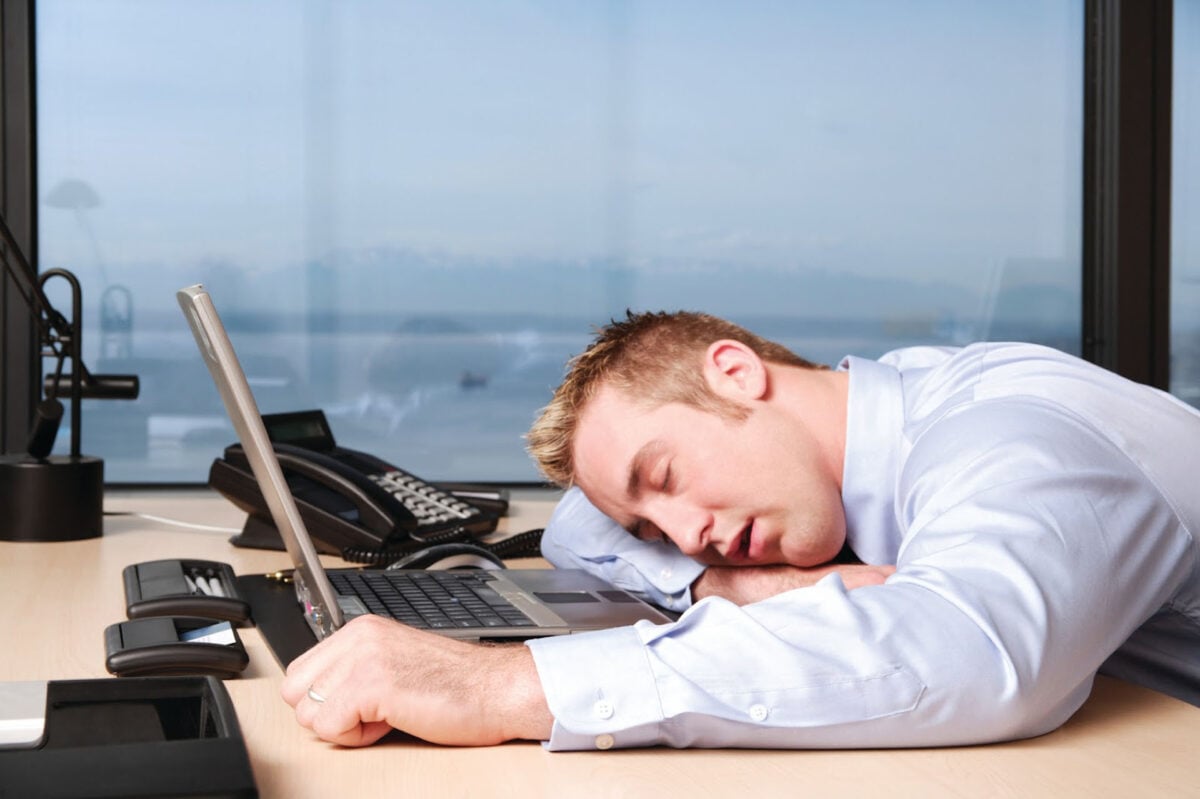Australian men are working harder than ever before, striving to be more productive, more efficient, and more successful. Good on them. But what if we told you that – as well as putting your mental health at risk – working flat-out might actually be inhibiting the productivity and success you’re looking to cultivate…
Hustle culture, the “sigma male grindset”, whatever you want to call it… Right now, and particularly online, men are being bombarded with hardcore messages about being productive and what success looks like. Figures like Elon Musk, Jordan Belfort, Andrew Tate, Gary Vee and Tony Robbins are front of mind for men; idolised as paragons of the hyper-productive and the epitome of masculinity.
Other than ushering in a wave of brilliant memes (and they have been brilliant, we must admit) the impact of the phenomenon has been overwhelmingly negative, convincing a generation of young men that the only way to find success in an increasingly precarious post-2008 economic landscape is to work all day, every day in pursuit of their professional goals, desperately starting a multitude of side-hustles as a means to triumph in the “rise-and-grind” world.
Australian men are no exception. Data just released by SmartCompany finds that Aussies have become ‘rest resistant’. Last year, Aussies worked 3.2 billion hours a year in unpaid overtime, built up 134 million days of accrued annual leave, and 3.8 million of us didn’t even take lunch breaks.
But is our addiction to being busy actually making us less productive whilst simultaneously damaging our mental health?

Beyond Blue claims that excessive work stress accounts for 13% of depression in working men, and cites “long working hours”, “work overload” and “high demands” – either imposed by management or by yourself – as causal factors in this figure. They note that work-induced mental health issues can have a direct impact on businesses and workers alike through “increased absenteeism”, “increased cost” and, crucially, “reduced productivity”.
RELATED: Time To Take ‘Burnout’ Seriously, Says Australian Mental Health Expert
For years, many have chosen to put their mental health needs aside in the pursuit of progress, but if hustling is actually reducing your productivity in both the long- and short-term, what’s the point? And what can you do to look after yourself without sacrificing those hard-earned workplace gains?
In order to be more productive in the long term, you have to come up with better ideas and make better decisions. Makes sense, right? The irony here is that in order to generate those ideas and make those decisions, you actually need to slow down and do less.
To try this out, you need to focus on the three D’s. You know we’re all about the ‘D’ here at DMARGE, so you won’t be surprised to hear that we’re big believers in Decelerating, Decompressing, and Deciding. This means slowing down the way you work, sharing the load, and prioritising the stuff that’s really important to you.
Another trick is the “15% buffer rule”: rather than trying to work at 100% capacity all the time – as our Hustle Heroes might encourage – you should instead aim for 85%. This leaves you 15% reserve capacity to adapt to the urgent or unexpected.

This way, if something does come up, you’ll have the time and space to tackle it without suddenly having to play catch-up. Try blocking out an hour per day of protected diary time or taking a few short breaks.
Bottom line, this is about avoiding the dreaded burnout. It may seem like working non-stop, staying up late, and filling every waking moment with activity is the key to productivity but, in the long-term, this approach is a killer of productivity and well-being alike.
By becoming more conscious of the way you work and the amount you’re taking on, you can become more realistic about what it’s actually possible to achieve in the time you have available. Time is our most precious commodity – both in work and beyond – so it’s essential to spend it wisely.
So if you want to find your success, make your millions, and live the Sigma Male good life, then go right ahead. All we’d say is this: if you’re looking to truly maximise productivity, play the long game, look after your mental health, and live a life of your design.
